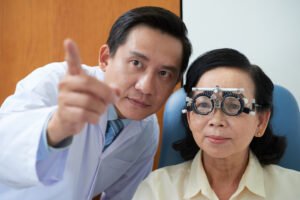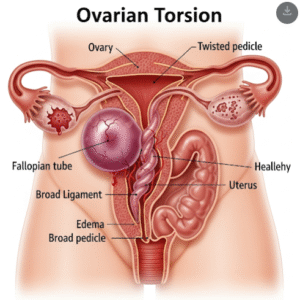Overview
Symptomatic epilepsy refers to seizures that occur as a result of a known cause, such as a brain injury, tumor, infection, or neurological disease. Unlike idiopathic epilepsy, where the cause is unknown, symptomatic epilepsy is secondary to an identifiable structural or metabolic abnormality. In South Korea, patients benefit from highly advanced diagnostic imaging and individualized epilepsy management through specialized epilepsy centers.
What is Symptomatic Epilepsy?
Symptomatic epilepsy is a type of epilepsy where seizures are attributed to a known brain abnormality or systemic condition. The seizures can vary in type and frequency depending on the location and nature of the underlying cause. This form of epilepsy can develop at any age and may be chronic if the underlying cause cannot be reversed or cured.
Common causes include:
- Stroke
- Brain tumors
- Head trauma
- Central nervous system infections (e.g., meningitis, encephalitis)
- Congenital brain malformations
- Neurodegenerative disorders
Symptoms
Symptoms of symptomatic epilepsy are often tied to the affected area of the brain. They may include:
- Recurrent seizures (focal or generalized)
- Sudden loss of consciousness or awareness
- Involuntary movements (jerking or twitching)
- Visual, auditory, or sensory hallucinations before a seizure (auras)
- Temporary confusion or disorientation after a seizure
- Behavioral or mood changes
- Difficulty speaking or understanding during seizures
Causes
Symptomatic epilepsy occurs due to structural damage or dysfunction of the brain. Common causes include:
- Traumatic brain injury (TBI)
- Stroke or hemorrhage
- Brain infections (e.g., herpes encephalitis, neurocysticercosis)
- Brain tumors or cysts
- Congenital abnormalities (e.g., cortical dysplasia)
- Neurodegenerative diseases (e.g., Alzheimer’s)
- Perinatal brain injury in newborns
- Previous brain surgery
Risk Factors
- History of significant head trauma
- Brain infections or high fever in childhood
- Stroke survivors
- Presence of brain tumors or lesions
- Neurodevelopmental disorders
- Family history of epilepsy
- Long-term alcohol or substance abuse
Complications
If not properly treated, symptomatic epilepsy can lead to:
- Increased risk of injury during seizures
- Sudden unexpected death in epilepsy (SUDEP)
- Cognitive impairment
- Mental health issues (depression, anxiety)
- Poor academic or job performance
- Social stigma and isolation
- Drug side effects from long-term use
Prevention
While not all cases are preventable, you can reduce risk by:
- Managing stroke risk factors (e.g., hypertension, diabetes)
- Preventing head injuries (e.g., wearing helmets)
- Timely treatment of brain infections
- Prenatal care to avoid birth injuries
- Avoiding alcohol and illicit drugs
- Regular monitoring for brain tumors or structural lesions
Treatment Options in Korea
South Korea is known for its excellence in neurology and neurosurgery. Patients with symptomatic epilepsy are treated through a combination of advanced diagnostics, medication, surgery, and lifestyle management.
Diagnosis
- MRI/CT Scan to identify brain abnormalities
- Electroencephalogram (EEG) to assess brain electrical activity
- Video-EEG Monitoring (long-term observation in epilepsy monitoring units)
- PET and SPECT scans for seizure focus localization
- Genetic and metabolic testing in pediatric cases
Medical Management
- Antiepileptic Drugs (AEDs): Common medications used in Korea include levetiracetam, lamotrigine, carbamazepine, valproate, and topiramate.
- Treatment of underlying cause: For example, antibiotics for infections, chemotherapy for brain tumors, or surgery for vascular malformations.
- Ketogenic diet: Sometimes used in children with drug-resistant epilepsy.
Surgical and Interventional Options
- Resective surgery: Removing the area of the brain where seizures originate.
- Vagus nerve stimulation (VNS): A device implanted under the skin to help control seizures.
- Responsive neurostimulation (RNS): A newer implantable system that responds to seizure activity.
- Laser ablation surgery: Minimally invasive method to destroy seizure foci.
Rehabilitation and Support
- Cognitive and speech therapy
- Mental health counseling
- Occupational and physical therapy
- Lifestyle counseling (sleep, stress, diet)
- Social reintegration support













